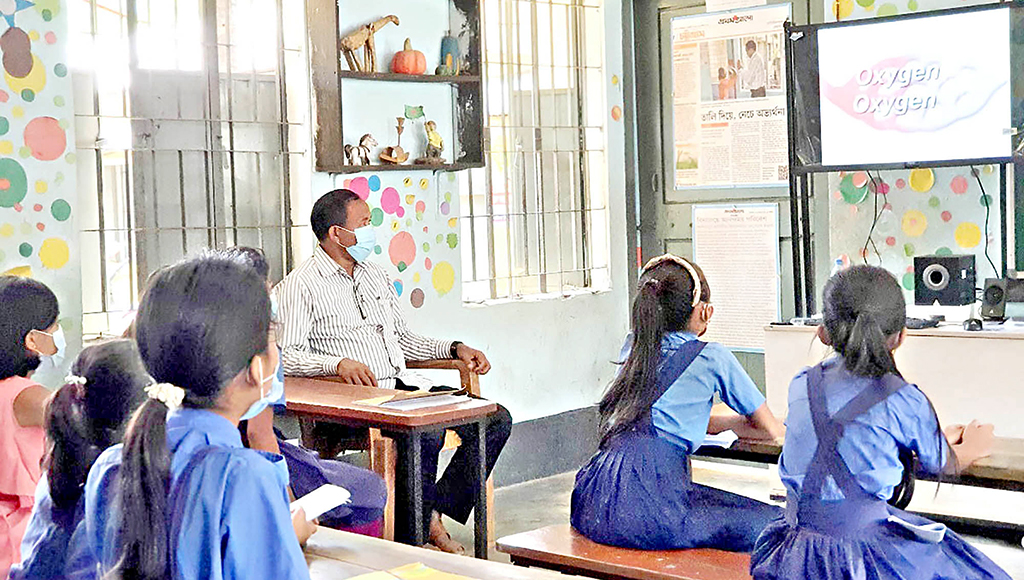Early childhood education is the foundation of a child’s learning journey. In Qatar, this crucial stage is gaining attention as educators, parents, and policymakers call for urgent reforms to improve the system. As of 2025, while Qatar has made efforts to enhance the quality of education, several challenges remain unaddressed. Immediate action is required to ensure every child has access to high-quality, inclusive, and affordable early learning.
This article explores why urgent reforms are needed to improve early childhood education in Qatar, what the current problems are, and what solutions can bring positive change.

1. Lack of Trained Educators Is Hurting Quality
One of the biggest challenges in Qatar’s early education sector is the shortage of qualified early childhood educators. Many teachers currently employed in nurseries or kindergartens do not have specialized training in early childhood development. This often leads to teaching methods that do not align with the cognitive and emotional needs of young children.
Experts say that a well-trained teacher plays a vital role in brain development during early years. Without the right support and knowledge, even the best curriculum can fail. Urgent reforms must include nationwide teacher training programs, incentives to attract talent, and clear teaching standards.
2. Education Access in Rural Areas Is Still Limited
While Doha and other major cities in Qatar have access to quality early education centers, children in rural or low-income neighborhoods face limited options. Many families cannot afford private nurseries, and public options are few.
This gap leads to unequal educational opportunities from the start, putting some children at a disadvantage before they even enter primary school. The government needs to address this gap by building more public kindergartens and offering subsidies for low-income families.
3. Overemphasis on Academics, Lack of Play-Based Learning
Another serious issue in early childhood education in Qatar is the overemphasis on academic results. Many early learning centers focus heavily on memorization, early reading, and math skills. While academic growth is important, studies show that children learn best through play-based learning, especially at an early age.
Play-based learning helps develop problem-solving skills, creativity, emotional intelligence, and social behavior. Reforms should include guidelines that encourage schools to adopt more holistic and interactive teaching methods, focusing on the overall growth of the child.
4. Parental Involvement Remains Weak
Parents are a child’s first teachers, and their involvement plays a major role in early development. However, many Qatari parents are either unaware of this or are too busy with work commitments to engage in their children’s learning.
This weak parental involvement creates a gap in communication between educators and families. Reforms should include awareness campaigns, workshops, and parent training sessions to promote active participation in their children’s education.
5. Weak Monitoring and Regulation of Private Centers
Qatar’s early childhood education sector includes a growing number of private institutions, which often operate without strict supervision. Some centers lack proper licenses or do not meet the safety and quality standards expected of educational institutions.
As a result, the quality of education varies widely across the country. To fix this, urgent reforms are needed to strengthen the monitoring system. A centralized authority should inspect and certify centers, monitor performance, and ensure every child receives the care and education they deserve.
The Role of Government and Stakeholders
The Ministry of Education and Higher Education in Qatar has taken steps to improve early childhood education, but the current system still needs deep and fast-moving reforms. Collaboration between the government, private sector, educators, and parents is essential.
Funds should be allocated not just for new schools, but also for upgrading current facilities, improving teacher salaries, and launching public campaigns that highlight the importance of early education.
Importance of Multilingual and Inclusive Curriculum

In Qatar’s multicultural society, an inclusive and multilingual approach is crucial. Many children grow up in homes where Arabic is not the first language. Reforms should focus on creating curricula that support both Arabic and English while respecting cultural diversity.
Additionally, children with special needs often do not receive appropriate support. Inclusive education policies must be reinforced so that no child is left behind.
Technology in Early Education: A Double-Edged Sword
While technology has many benefits, overuse in early education can be harmful. Some centers rely too heavily on tablets and digital content, reducing physical activity and real-world interaction. Reforms should encourage balanced use of educational technology, promoting real-world engagement alongside digital learning tools.
A Positive Future Is Possible
If Qatar addresses these five major issues with urgency and care, the future of early childhood education can be both strong and sustainable. Educating children in their early years creates a foundation for a well-rounded, skilled, and emotionally intelligent society.
Immediate changes in policy, infrastructure, and mindset are necessary. With the right steps, Qatar can become a leader in early childhood education across the Middle East.
Conclusion
Urgent reforms are needed to improve early childhood education in Qatar, and the time to act is now. A quality start in life means better outcomes in school, work, and life. With proper investment, strategic planning, and community involvement, Qatar can provide every child with the best chance for a successful future.
Also Read – Qatar Digital Education Access Target: 100% by 2027



